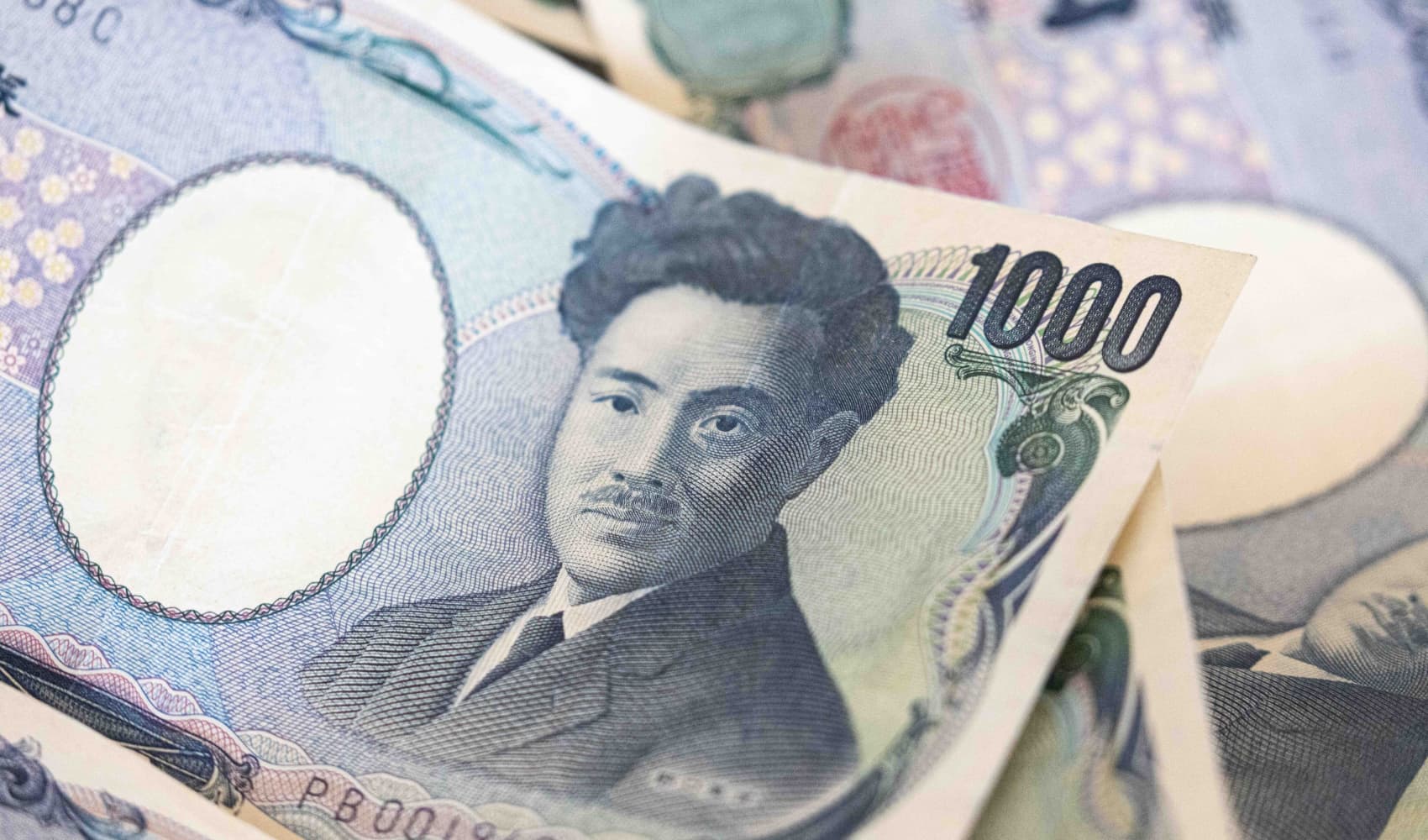
This is CNBC's live blog covering Asia-Pacific markets.
Asia-Pacific markets were all lower Friday, extending losses from Thursday's broad sell-off.
This comes as U.S. Federal Reserve Chair Jerome Powell said inflation was still too high and would likely require lower economic growth. The benchmark U.S. 10-year Treasury yield also crossed 5%{
U.S. 10-year Treasury yield crosses 5% for the first time since 2007
Get Tri-state area news and weather forecasts to your inbox. Sign up for NBC New York newsletters.
The yield on the benchmark U.S. 10-year Treasury crossed 5% for the first time in 16 years.
The 10-year Treasury yield hit 5.001% at 5:02 p.m. ET, the first time it has traded above that key level since July 20, 2007 when it yielded as high as 5.029%.
— Gina Francolla, Christine Wang
Money Report
While he noted that recent data showed progress toward slowing prices, Powell also added that monetary policy was not yet too tight.
Asia investors will also assess Japan's September inflation data, which came in at 3%, the 18th straight month above the BOJ's 2% target, as well as China's one-year and five-year loan prime rates.
In Australia, the S&P/ASX 200 closed 1.16% at 6,900.70.
Japan's Nikkei 225 closed 0.54% lower at 31,259.36, while the Topix ended 0.38% down at 2,255.65. Both indexes fell after data showed Japan's headline inflation rate slowed in September.
South Korea's Kospi dropped 1.69% to 2,375 at its close, while the Kosdaq was 1.89% lower at 769.25.
Hong Kong's Hang Seng index shed 0.73% in its final hour, while China's benchmark CSI 300 index slipped 0.65% to end the day at 3,510.59, near its one year low of 3,508.7. China's central bank kept its benchmark loan rates unchanged for October.
Overnight in the U.S., all three major indexes lost ground as Powell's comments and rising bond yields weighed on markets. The benchmark 10-year Treasury yield traded as high as 4.996% on Thursday, inching closer to the well-followed 5% level that was last crossed in 2007.
The Dow Jones Industrial Average shed 0.75%, while the S&P 500 dropped 0.85%. The Nasdaq Composite led losses among the indexes, falling 0.96%.
— CNBC's Brian Evans and Alex Harring contributed to this report.
Malaysia inflation rate slides to lowest since March 2021
Malaysia's consumer price index recorded a 1.9% increase year on year for September, lower than the 2% in August and also lower than the 2.2% expected by a Reuters poll.
This is lowest rate of inflation the country has seen since March 2021. Malaysia also has not seen an increase in its inflation rate for 13 straight months.
On a month on month basis, the consumer price index increased 0.1% in September, slightly lower than the 0.2% increase recorded in August.
— Lim Hui Jie
CNBC Pro: Should you lock in those high yields right now? Here's what Wall Street is saying, and how to invest
A bond bear market has dominated this year.
But with 10-year Treasury yields surging to a high not seen since 2007 on Thursday, many investors might now be tempted to lock in those high yields and buy into bonds. The 2-year Treasury yield was at 5.16%, near levels last seen in 2006.
Volatility in the bond market may, however, cause some hesitation among investors. Wall Street weighs in on the right moves to make.
CNBC Pro subscribers can read more here.
— Weizhen Tan
Indonesia central bank aims to cushion rupiah with surprise rate hike
Bank Indonesia raised interest rates on Thursday in a surprise move to stave off the rupiah's decline.
Indonesian rupiah traded 0.5% lower against the dollar on Thursday, after having lost nearly 2% this year.
Indonesia's central bank raised the benchmark 7-day reverse repurchase rate by 25 basis points to 6%, its second hike this year. All economists polled by Reuters had expected the bank to leave rates unchanged.
"Policymakers batted for currency stability in the face of global uncertainties," said Radhika Rao, senior economist of DBS Group Research, noting that the door remained open for more policy tightening as "Indonesian policymakers face a policy dilemma as global uncertainties outweigh recent positive domestic data outturns."
Data ranging from inflation, trade balance and money supply will all be released before Bank Indonesia's next policy meeting in November.
— Shreyashi Sanyal
China leaves benchmark lending rates unchanged in October
China kept benchmark loan rates unchanged for October, after the slowdown in the world's second-largest economy showed signs of stabilization following recent policy support.
The People's Bank of China kept its one-year loan prime rate — the peg for most household and corporate loans in China — unchanged at 3.45%. The five-year benchmark loan rate — the peg for most mortgages — was held at 4.2%, according to a statement Friday from the Chinese central bank.
— Clement Tan
U.S. 10-year Treasury yield crosses 5% for the first time since 2007
The yield on the benchmark U.S. 10-year Treasury crossed 5% for the first time in 16 years.
The 10-year Treasury yield hit 5.001% at 5:02 p.m. ET, the first time it has traded above that key level since July 20, 2007 when it yielded as high as 5.029%.
— Gina Francolla, Christine Wang
Japan's headline inflation rate slows to 3% in September
Japan's headline inflation rate came in at 3% for September, slowing from the 3.2% rate in August.
However, this reading was the 18th straight month that inflation remained above the Bank of Japan's 2% target.
Core inflation — which strips out prices of fresh food — also slowed to 2.8%, down from 3.1% in August.
Separately, the so called "core-core" inflation metric, which strips out prices of fresh food and energy and is watched by the BOJ, fell to 4.2% from 4.3% in August.
— Lim Hui Jie
CNBC Pro: These 6 global stocks are nearing the dreaded 'death cross' chart pattern
Six global stocks look close to forming what's known as a "death cross" chart pattern, indicating potential selling pressure in the near future.
A death cross is a price chart pattern that forms when a stock's 50-day moving average crosses below its 200-day moving average. Technical analysts view this as a sign that investors are bearish on a stock or that a stock's momentum is weakening and will continue to decline, with a potential buying opportunity soon. The death cross is also used as a bear market predictor.
CNBC Pro subscribers can read more about those six stocks here.
— Ganesh Rao
Gold appears 'short-term overstretched' after recent rally, technical analyst says
Investors have taken rallying gold prices as a signal that markets are risk averse in a period of rising bond yields and the escalation of the Israel-Hamas conflict. Spot gold was last trading around $1,957.39 per ounce, up roughly 8% from its October lows around $1,819.
However, Fairlead Strategies' Katie Stockton expects that gold is "short-term overstretched" and could pull back next week. She expects the recent move higher is a bounce from its previous lows.
"Gold have really shot up this week," Stockton said. "Everyone's been very quick to say that it's because there's risk off now in the market, but I would disagree with that."
"We have to contextualize it with what happened before this relief rally in gold, right, which was a really sharp downdraft. So, gold is basically right back to where it was in sort of mid to late September," she added. "So we've seen a round trip in the price of gold."
— Sarah Min
Pharma stocks Pfizer, Moderna among 26 new S&P 500 lows
Pharmaceutical stocks such as Pfizer and Moderna were among the 26 S&P 500 names hitting fresh lows on Thursday. Shares of Illumina also traded at lows not seen since December 2016.
Elsewhere, United Airlines hit lows last seen in October 2022, while Southwest Airlines was trading at lows not seen since May 2020.
Here are some of the other names hitting fresh lows:
- General Motors trading at lows not seen since October 2020
- Genuine Parts trading at lows not seen since July 2020
- Rollins trading at lows not seen since June 2022
- Johnson Controls trading at lows not seen since October 2022
- Corning trading at lows not seen since July 2020
- Albermarle trading at lows not seen since July 2022
— Sarah Min, Gina Francolla
Stocks turn after Powell says monetary policy is not yet too tight
Stocks took a leg down after Federal Reserve Chair Jerome Powell said economic policy has not yet seen too much tightening.
The Dow and S&P 500 were both down about 0.3% shortly before 12:45 p.m. ET. The Nasdaq Composite slid 0.4%.
— Alex Harring
Jobless claims come in lighter than expected
Initial U.S. jobless claims came in at 198,000 for the week ended Oct. 14. That's well below a Dow Jones estimate of 210,000, and it marks another sign of a resilient economy despite higher interest rates.
— Fred Imbert






